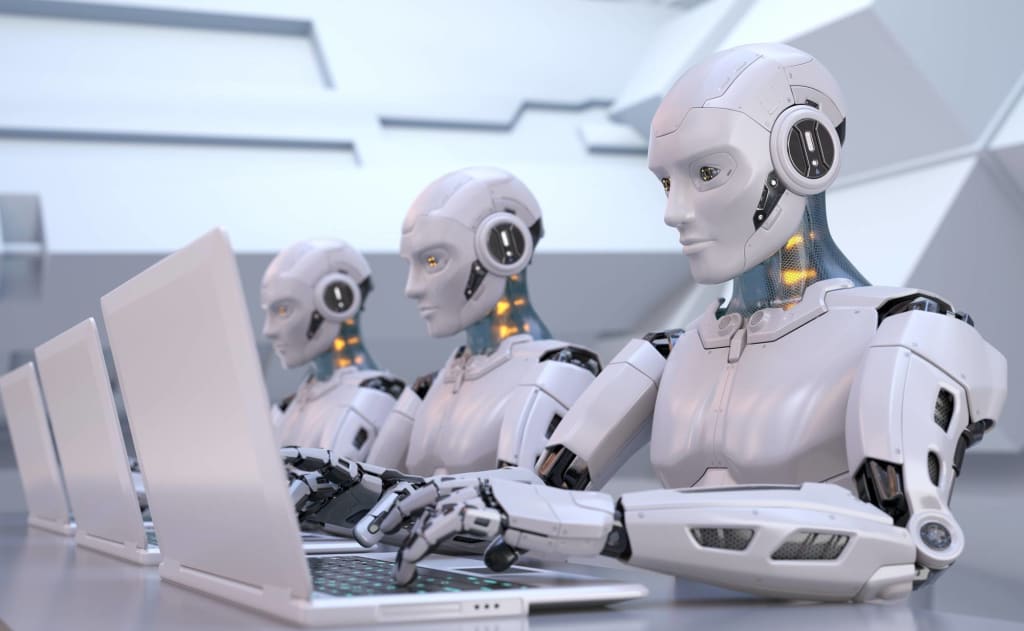Embracing the Future: Reskilling Imperative in the Era of Artificial Intelligence
Artificial Intelligence (AI)

That overcame the dawn of artificial intelligence ushers in a new frontier of technological advancements, bringing very transformative changes that penetrate nearly into every dimension of our life. From self-driven cars to intelligent personal assistants, AI is changing the way we work, live, and engage with the world. Though AI definitely comes with manifold benefits, some significant potentials for chaos also exist, especially within the domain of employment. Jobs considered safe are now vulnerable to automation. A new set of skills has emerged that has become almost the litmus test for mere survival in this rapidly changing landscape. For survival in this bold, new world, there is a strong need to embrace reskilling, which means adapting and acquiring new competencies to stay relevant and competitive.
The Impact of AI on Employment
The impact of AI on the job market is deep and multi-dimensional. Whole industries are changing due to automation, driven by sophisticated AI algorithms that are pumping a vast number of jobs out of the system. According to the report of the World Economic Forum, AI and automation might displace 85 million jobs by 2025. Another way of looking at it: the same report estimated 97 million new jobs that would be created—begging the question of AI's dual nature of impact.
While more routine tasks are increasingly being automated, the corresponding increases in complex problem-solving, creativity, and emotional intelligence make these more challenging to automate. This represents one of the dramatic shifts in required skill bases within today's workforce. Reskilling is hence not merely a reaction to possible job loss but can be a rather proactive strategy for leveraging the opportunities brought forward by AI.
Identifying Key Skills for the AI Era
One needs to have a pretty diversified skill set if one is going to live in an AI world, and that will surely complement AI, not just competently live with it. Here are some of the crucial skills for the AI-driven future:
1. Digital Literacy and Technical Skills
Understanding and harnessing technology assumes a foundational role in the AI era. Digital literacy—a competent self-assurance while using a computer or software—still holds as core. But other specialized areas of technical skill increasingly become relevant, most especially:
Programming and Coding: These are the languages required to develop and work especially with AI systems, including Python, R, and JavaScript.
Data Analysis and Interpretation: This is a skill set related to data analytics, machine learning, and statistical analysis, alike, that gives meaning to extracting inferences from data for advising decision-making. V. Cybersecurity: Essentially, because AI systems are processing masses of sensitive information, appropriate cybersecurity measures take on even greater importance. It would be critically important to ensure no breach or cyber attack occurs with the skills in cybersecurity.
2. Critical Thinking and Problem-Solving
While AI can process information and perform basic tasks with unmatched speed and accuracy, often it falters where it may be asked to make a keen and wise decision and hence is unable to do the same; likewise, AI cannot resolve highly complex problems. Critical thinking and the ability to approach problems creatively and strategically are significant skills that complement AI capabilities.
3. Emotional Intelligence and Interpersonal Skills
Of all AI's impressive advances, emotional intelligence has to be one of the most uniquely human. Understanding and managing one's emotions and empathizing with others are skills central to any collaborative, leadership, or customer-facing role.
4. Adaptability and Lifelong Learning
This mindset also requires continuous learning and adaptability to emerging technologies as they rapidly evolve. For one to remain relevant, updating their skillset and knowledge is compulsory. Therefore, lifelong learning in the face of this new AI era ceases to be a notion but really a critical practice.
5. Creativity and Innovation
AI can go through data analysis and come up with insights, but not replicate human creativity and ability to innovate. Especially in a world that continues to get automated with respect to routine tasks, there exists a huge demand for creative thinking and the ability to come up with new ideas and solutions.
Strategies on Reskilling
Reskilling, therefore, is proactive and has to do with continuous improvement. Listed here are some strategies that shall help one on this journey:
1. Formal education and training programs
Formal education programs, such as degree courses, certifications, and workshops, are the more formal ways of learning. Many universities and institutions now have special programs particularly for AI, data science, and allied fields.
2. Online Learning Platforms
Online learning platforms like Coursera, edX, and Udacity offer vast courses and certifications. Through these, one gets flexible learning: at one's pace and convenience.
3. Employer-Sponsored Training
Many organizations understand the need for reskilling their human resources and hence have begun to sponsor training programs and facilities. Being part of such an organization gives employees a vantage point since they can leverage the same to acquire new skills with no personal cost attached.
4. Mentorship and Networking
Communicating with mentors and other professionals in the industry will provide invaluable knowledge and wisdom. Network peers and professionals in relevant fields can also provide an opportunity to learn from others or work together on projects.
5. Practical Experience
Experience is often the best teacher. Involving oneself in projects, internships, or relevant volunteer work will provide hands-on experience and enhance learning.
Role of Organization and Governments
Although there is a certain amount of personal responsibility that individuals must assume in terms of reskilling, this process is greatly facilitated by organizations and governments. In particular,
1. Organizations
Organizations can facilitate reskilling as follows:
Investing in Employee's Training: Enough resourcing, training programs, and skill upscaling or even development opportunities for their employees.
Setting up of Culture of Continuous Learning: An organization that encourages lifelong learning and innovative culture.
Offer flexible work arrangements to let workers pursue education and training while working.
2. Governments
Governments can facilitate reskilling by:
Developing and funding training programs. This means investing in public education and training programs that equip people with the skills of the age of AI.
Creating policy enabling lifelong learning: Meet policies and incentives to facilitate continuous education and skill development.
Collaborate with Industry: Work with industry leaders in identifying skill gaps and generating relevant training sessions for the same.
Embracing the Future with Confidence
The rise of AI is reshaping the world in profound ways; there has never been a greater need for reskilling. And that is how, by proactive development of new skills and keeping a continuous learner mindset, one can easily survive and thrive in the AI era.
Reskilling is not just about change; it represents new opportunities and realizes potentials for empowerment to take responsibility over careers and future-proofs from unknowns of technological progress.
Though the reskilling journey is likely to be tough, the opportunity it presents for growth and transformation is indeed interesting. Therefore, confident and self-determined people who take this journey can master the intricacies of working in the AI age and come out at the other end: stronger, more capable, and prepared to succeed in an AI-driven world.
In other words, the AI age is a time that needs a proactive and continuous way of learning and skill development. Working on digital literacy, critical thinking, emotional intelligence, adaptability, and creativity helps everyone be better positioned for success. Notably, organizations and governments have equally important roles with regard to their support for reskilling. Only together can we make the most of AI and create a future where technology empowers human capabilities and drives progress for all.
About the Creator
Dave Karpinsky
A world traveler, educator, consultant, entrepreneur, husband and a father sharing his experience and wisdom.
Enjoyed the story? Support the Creator.
Subscribe for free to receive all their stories in your feed. You could also pledge your support or give them a one-off tip, letting them know you appreciate their work.






Comments
There are no comments for this story
Be the first to respond and start the conversation.